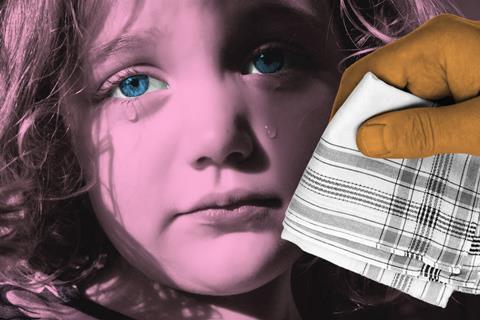Kate Orson tackles a question asked by a child, but which is also asked at all ages by all peoples.

Why Does God allow suffering? Why is there war and hunger? Why do some people have more than enough, while others don’t?
Looking around the world, it’s a very unfair place. It can be hard to explain to children why an all-powerful God would allow these things to happen. We might have all the logical sounding arguments about free will, the fall of man, and God’s plan to redeem us, but how to explain that in a way that a child can understand? Even adults sometimes struggle with accepting the pain and suffering present here on earth. Even adults sometimes lose their faith when they just can’t understand why a God would allow this.
Maybe we can start by sharing with our children how much God loves us, and how much he hates sin. When the first people Adam and Eve left the garden, God clothed them to offer them protection. God loved us so much he sent his only son to die for us. He hates suffering and he has a plan in place to put an end to it.
On an individual level God is there to protect us from suffering, to provide for our needs, and answer our prayers. Sometimes we will go through times of hardship and struggle and God will be on our side to give us the strength to get through.
One way to bring it down to a child’s level is to use a parental analogy. It’s kind of like when a parent tells a child, ‘’don’t touch the stove, you’ll burn yourself,’ or ” take a rain jacket to school today as it will rain!’’ Parents have good advice and life tends to go more smoothly when we listen to them. It’s the same with God but not everyone wants to listen to him. Because of that there is suffering in the world.
We can reassure our children that God can work in even some of the worst situations for good. The story of Joseph in Genesis 37-50 could be a good example to share. Joseph was sold into slavery by his brothers, but after interpreting Pharaoh’s dream he was given a powerful position and ended up saving people from famine. God has a bigger plan and it’s perfectly okay to say that even as adults we can’t fully understand it. We can explain to children that just as they don’t always understand why a parent is doing something, we might not always understand what God is doing. But he is going to make everything okay in the end.
As Revelation 21.4 says, God ‘will wipe away every tear from their eyes, and death shall be no more, neither shall there be mourning, nor crying, nor pain anymore, for the former things have passed away.’
On a practical level in the meantime we can use challenging questions like this as an opportunity to remind children of the ways that we have the power to help make it better. We can pray together as a family about the pain and suffering in the world. We can find ways to spend our time or money to support people in need. We can share the Gospel.
When we follow God, pray for our friends and enemies, obey the commandments to love our neighbour we can do our bit to reduce the suffering of others. This can be an empowering way for children to work in partnership with God.


































